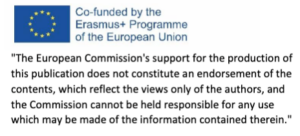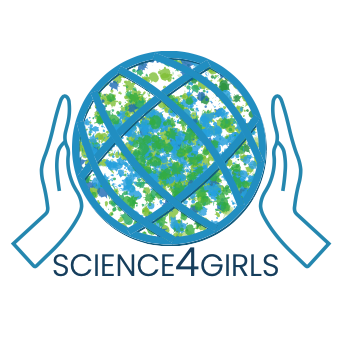Research goals
Link to Research Paper:
IO4 – Research Agenda of Science4Girls
The Intellectual Output 4 (IO4) of the Erasmus+ Science4Girls project is concerned with exploring how the methodology of Open Science Schooling (OSS) can support girls’ (re-)engagement in STEM science and render science an interesting and viable career opportunity in the future.
The research objectives of the project are:
- to identify what characteristics of OSS make STEM science more attractive to study for the girl students, and
- to understand how the Science4Girls’ focus on climate change promotes girls’ increased interest in STEM.
To fulfil these research objectives, the research team in Science4Girls explores how the girl students engage in science learning when it is OSS that is additionally focused on climate change. Researchers investigate what image of STEM science do the girl students hold as they enter the Science4Girls project and how, if at all, this image is re-defined as a result of the project implementation.
Related to that, the scientific investigations delve into the questions what academic perceptions the girl students have of themselves at the outset of the project, and how, if at all, these perceptions change as a result of the project implementation.
Because both, the image of science and girls’ self-perception as scientists are deeply rooted in the norms and stereotypes regarding gender and science, the research sheds light on the gender norms in science that discriminate against girls and ponders how these norms can be challenged by the OSS methodology. Finally, researchers also explore the role of influential others, that is teachers, parents and guardians, other important family members and peers in influencing girls’ interest in science and their motivation or lack of thereof to engage in science professionally and sustainably.
In addition to the main framing described above we aim to study students’ creative thinking in the context of climate change project activities. One study will focus on the different students’ behaviours while generating and selecting ideas and participating in the various activities. The outcome of this study will provide valuable understandings into girls’ opinions and their role in science and climate change. Moreover, it aims to give insights about idea effectiveness on motivating girls to science and how to increase their awareness of climate change.
The study will mainly occur in the 5-DAY GIRL TEAMS CO-CREATION MOBILITY, to be hosted in Lisbon. This mobility will link the past to the future in the project progression, highlighting lessons learned from the long and deep project practice and its transformation into knowledge elements. The key objectives of the mobility are:
Carry out intensive dialogues about the lessons learned from the two practice phases
Focus on the direct communication of the girl teams’ experience: how did we learn and feel science through climate change engagement?
- Discuss the storytelling from the experimentation and how it can be used for the final outcomes
- Collect, edit and produce on location elements for the Video Movie
- Elaborate on the girls’ personal testimonies: how can they be communicated on the website and in the final outcomes?
- Plan the production of final outcomes and how science teachers and girl teams can contribute during and after the mobility
- Discuss how the local multipliers can be driven by the girl teams and how they can mobilize community resources to continue the climate change missions.

